In the second and final part of his autobiographical account, Stephan tells us how he benefitted and gained from martial art – an exclusive for Different Truths.
Applying: Martial art Gives me the Power to Apply
In Hong Kong, I was promoted in the press as “Vicious Legs” and “Poison Kick” due to my kicking skill. But after three films I returned home after the Tiananmen Massacre, which shocked Hong Kong to a standstill. My older sister, Donna, who is a film costume designer, suggested I could get a film or other performance work in NY. I wasn’t feeling that. I only wanted to continue developing my martial art. That’s all. I was also intent on finishing college.
But from her spreading the word, I was contacted by the late musician, Fred Ho. I didn’t know much about him. I only remembered his name as a community leader in Boston. He was a powerful character – a U.S. Marine, Harvard graduate, and a highly regarded baritone sax player who was a disciple of the preeminent African American jazz musician, Archie Shepp. He was also an essayist and an influential social justice activist. When I met him, he was writing operas, combining Chinese and African American stories and culture. He was influenced by David Henry Hwang’s ‘The Dance and the Railroad’, (a stage musical about early Chinese Americans starring John Lone), which my father took me to see years before.
Upon meeting him, the first thing he asked was, “You were on Bow Sim Mark’s performance team?” I answered, “Yes, I was.” He said, “I know about you in movies, but tell me about her performance work.” I asked, “Did you follow her?” He said, “Yes! She showed me I can combine my music with martial arts to tell authentic cultural stories.”
Bow’s expression of her martial art was beyond fighting or exercise.
Bow’s expression of her martial art was beyond fighting or exercise. She was a traditional martial arts master who combined her art with music in a distinct way. Yet she never realised how much of an influence she had. Bow gave Ho the confidence to create operas that told American history through African American music and Chinese martial arts.
He asked, “Would you like to work with me? I’m about to launch readings and single-act staging, but I need the right kind of martial arts choreography.” Of course, I said yes. We created the first staging of his “Warrior Sisters” opera at NY City College’s Aaron Davis Hall. It featured the Asian American performance group, ‘Slant’, (led by Perry Yung, now a star of HBO’s ‘Warrior’), Ho’s ‘Afro Asian Music Ensemble’, and me as the martial art choreographer.
After working on that early production, he obtained funding to do bigger shows. I finished my undergraduate degree and assured my parents I’d go to graduate school to study international affairs. I was even more energized to pursue international studies after my work with Ho.
Establishing: Martial Art Gives me the Power to Establish
Before working with Ho, I heard through the NY Chinese martial arts network that a new practitioner was in town. He was teaching the mother form of Tai Chi, (Chen style), and was trained by Tai Chi’s creators, the Chen family of north China. I discovered from a promotional flyer my future wife noticed at her workplace, that it was Ren Guangyi. The time was right. I was ready to follow Bow’s advice from years before, to focus on the “internal” martial arts, like Tai Chi, after building a foundation in the “external” disciplines.
My father and I went to meet Ren. I immediately enrolled in his first group.
My father and I went to meet Ren. I immediately enrolled in his first group. I saw him as a very professional, intense, and highly polished martial artist. That was rare to see in the U.S. Tai Chi scene back then. I quickly became one of his most ardent students devoted to his intense training.
Even during grad school back in Boston, I returned to NY for monthly training sessions with Ren. When I finished school, I returned to NY for a year of daily training with him. Those intense sessions were early morning at Flushing Park in the Chinatown part of Queens, NY.
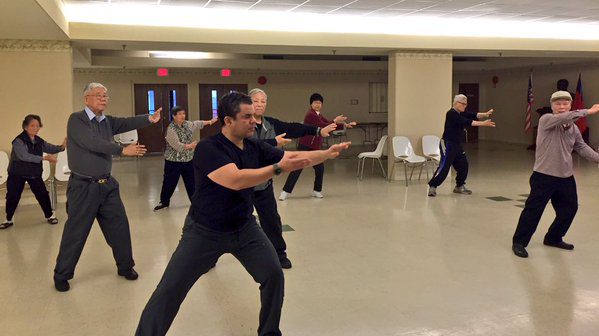
I moved to Washington, DC for a federal government job and started to teach, largely due to Ren’s insistence. Within a year, I brought him to DC for seminars, which we continued for a decade. I then underwent especially deep training from the top-ranked master, Chen Xiaowang, and his brother, the family village head, Chen Xiaoxing. Direct training from the Chen family heads further deepened after my first visit to the Chen village with Ren in 2000.
That visit was seminal because of the primary research I did there, which had never been done by a westerner. I interviewed top practitioners in the village. From that research, I wrote the first English articles that profiled the next generation of Chen family masters. One article was the first profile of Chen Xiaoxing in the Western press. With Ren’s help, I began to organise seminars for Chen family masters, which had a big impact on my growth and place in the art.
In 2006, I was profiled in the academic ‘Journal of Asian Martial Arts’ (JAMA).
In 2006, I was profiled in the academic ‘Journal of Asian Martial Arts’ (JAMA). I had already been featured many times in the martial arts and local Washington, DC press. But the JAMA profile was a landmark. I was the sole westerner to represent Chen Tai Chi on a JAMA cover.
Chen Xiaoxing then designated my group, (‘True Tai Chi’), as one of the few Chen Family Branch Schools outside China.
Doing: Martial Art Gives me the Power to Do
My work grew, including research, writing, and organizing quarterly seminars. The seminars also included some with my and Donnie’s teacher, Bai Wenxiang, with whom I was featured in ‘Inside Kung Fu magazine.
The first of my seminars was organized by my best friend since high school, the martial artist, Henry Hsiang. I also conducted seminars in Seattle and Jakarta, organised by my friend and student, Larry Frost. Jose Figueroa, my training brother from Ren’s first group, organised seminars in Minneapolis. And Bill Helm of San Diego’s Taoist Sanctuary hosted my teaching in California.
With public service in my blood, I spent a few years teaching Tai Chi to the U.S. diplomatic corps.
With public service in my blood, I spent a few years teaching Tai Chi to the U.S. diplomatic corps. It was part of the U.S. Foreign Service National Training Center’s “Resiliency” program. I then began teaching Tai Chi to under-supported communities.
I served as the content advisor and lead narrator of the documentary film, ‘Urban Dragons’, which told how Chinese martial arts benefits black and brown men. With mentoring from my student, Joe Youche, a leader in community math education, I developed ‘Stand and Step’. The non-profit organization developed Tai Chi programs for at-risk youth. I went on to lead a long-running Tai Chi program for low-income, under-represented adults as part of AmeriHealth, a community health education initiative.
From this work, the Washington, DC Mayor’s Office of Asian and Pacific Islander Affairs asked me to lead a Tai Chi program in the city’s historic Chinatown to revive its crumbling central park and get the elderly back outdoors. The success of the program led to a nearly decade-long community program I continue to this day.
My writing included co-authoring three books on Chen Tai Chi – one utilising the photography of Ren’s student, the performance artist, Martin von Haselberg. Of the over three dozen articles I published, they include the first martial arts profiles of David Bowie’s music producer, Tony Visconti, and the media CEO and venture capitalist, Jon Miller. I co-produced the first detailed English translations of the Chen family scholar, Chen Xin’s 1933 manual with my student and Chinese linguist, Dan Butler. The article featured Chen Xiaowang’s first ever commentary on his ancestor’s book. I wrote the first English piece on Qingping Sword, (the last surviving Chinese sword system), which I study under the senior ranked Qingping instructor in the U.S, Hon Lee, who is also one of my first Chen Tai Chi students.
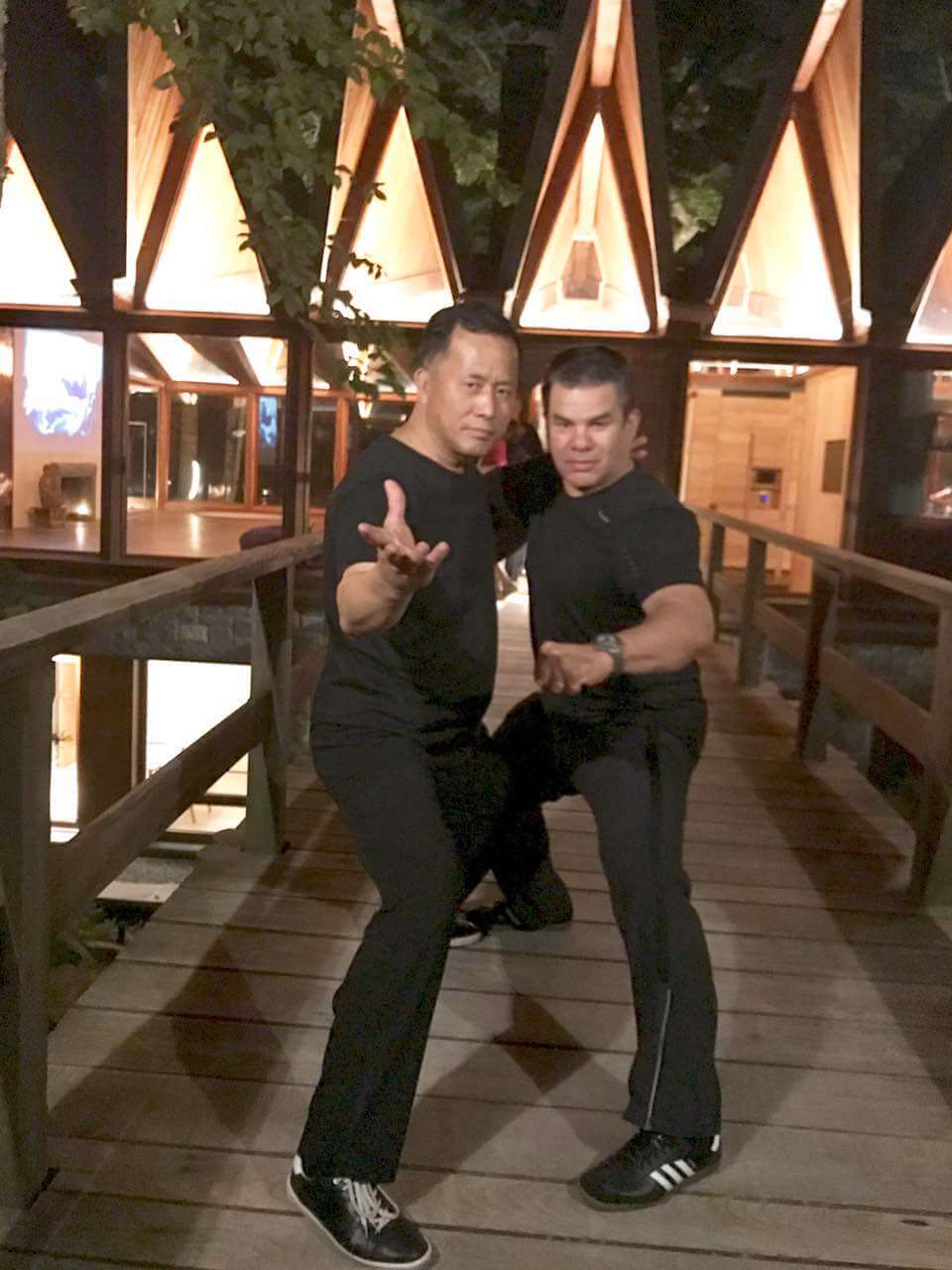
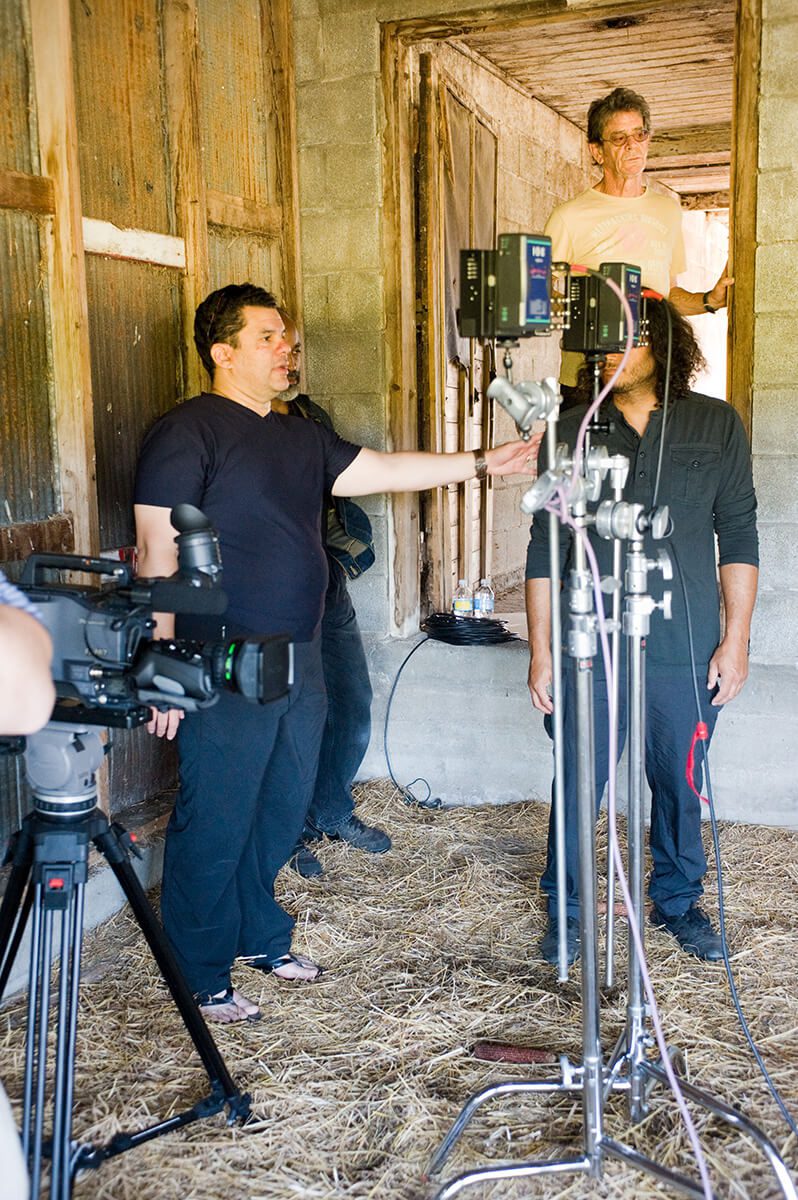
In 2003, Ren and I were invited to a national martial arts event in California …
In 2003, Ren and I were invited to a national martial arts event in California, where I first met the late rock music legend, Lou Reed. He had just begun studying under Ren. We connected immediately. He so enjoyed talking about his little-known, long passion for martial arts. From then on Ren insisted we do something together.
Creating: Martial Art Gives me the Power to Create
During our first meeting, Lou spoke passionately about “Meditation on Violence”, a 1948 film by the avant-garde filmmaker, Maya Deren. I’d heard of the film but didn’t know who Deren was. It was a mystery to us. Lou thought there was something other-worldly about the black and white film. It featured the Chinese American stage and film actor, Chao-Li Chi, who decades later, played one of the older characters in the famous 1980’s American martial arts fantasy film, ‘Big Trouble in Little China. I had no idea he was a skilled martial artist because he was from a time when Chinese martial arts were kept quiet within their community. The film is likely the first known instance of a traditional Chinese martial art employed as modern performance art in the west.
During this period, I wrote a paper on the history of martial arts as performance art. So Ren pushed hard for me to come up with an idea for a film. With Lou’s love for the Deren piece, he was open to doing something together. I wrote the concept of an idea I had years before, which I presented to him. He said, “Yeah, I get this. I think there’s something here. We can do something.”
Lou gave me the extraordinary permission to use any of his music!
Lou gave me the extraordinary permission to use any of his music! A short time later, with Jose Figueroa as producer, we made the film, ’Final Weapon. It starred Ren, and Michael Woods, and featured an appearance by Lou. The film accomplished what we set out to do. ‘Final Weapon’ captured the power and magic of Tai Chi as the martial art it was intended to be.
The film producer, martial artist, and chief curator of NY’s Museum of the Moving Image, Warrington Hudlin, organised an early screening and discussion about ‘Final Weapon. Fred Ho attended, where we had the great honor to introduce him to Lou. The film went on to screen, with a discussion, at the filmmaker and critic, Jonas Mekas’ Anthology Film Archive in NY.
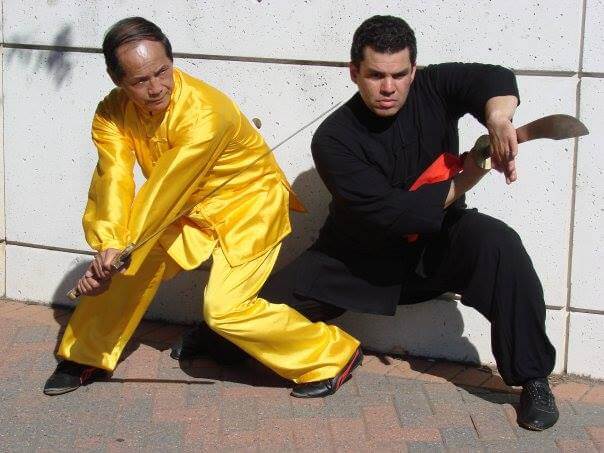
At the Anthology event, Lou discussed the Deren film and how important it was to him, and his fascination with Chinese martial arts. ‘Final Weapon’ gave Lou the same feeling he got from ‘Meditation on Violence’. He described how pleased he was with my musical direction of the film, which I handled with great care. He told me, “You gave my music a home in ‘Final Weapon’.” I knew Lou would occasionally say things to encourage talent he believed in, but I was spellbound hearing that. He often asked me, “Steph, did you ever produce music before? It’s amazing what you did with my music!” I said, “I just believe I know good music. I know you.” Of course, I knew Ren, the art, and Chinese martial culture deeply. And with my film background, there was indeed the potential to create something new and arresting.
Making ‘Final Weapon’ was an effort of pure passion. It was one of those prescient opportunities in life that united like-minded souls to create something new. I expressed to Lou that what was inside me, we brought out visually. He responded, “It’s from your words to life.” Even Mekas assured me, “You captured something special in this film. Don’t stop.” Those were precious things for me to hear because it’s rare to be acknowledged by such luminaries. These are among the few deep confirmations I’ve ever received in life – that when I have the urge to create something new from these magical old arts, I can.
Link to part one of this post: Stephan: Gaining my 8 Powers from Martial Art – I – Different Truths
Concluded
Photos by the author

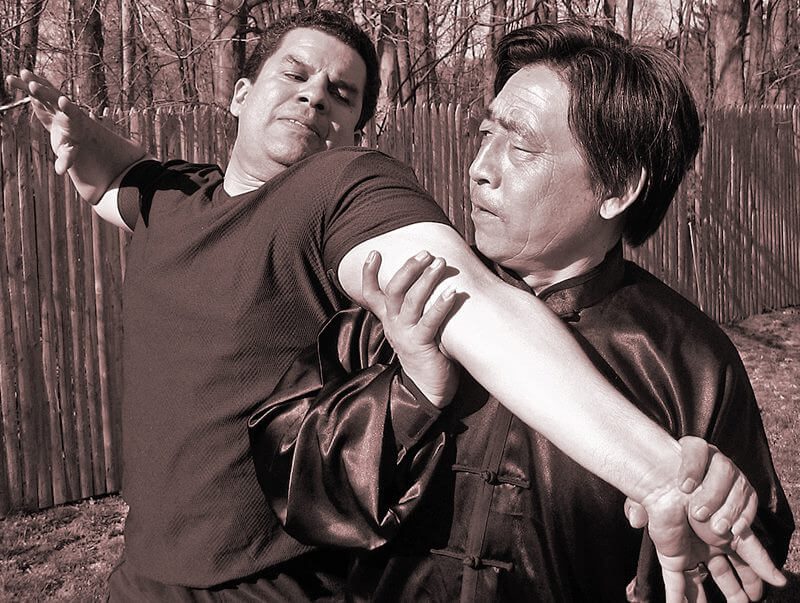



 By
By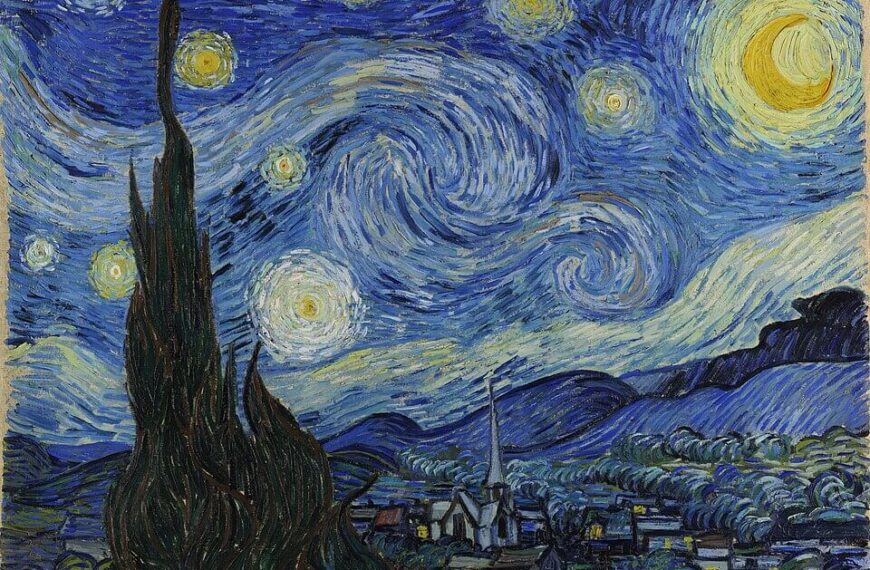
 By
By
 By
By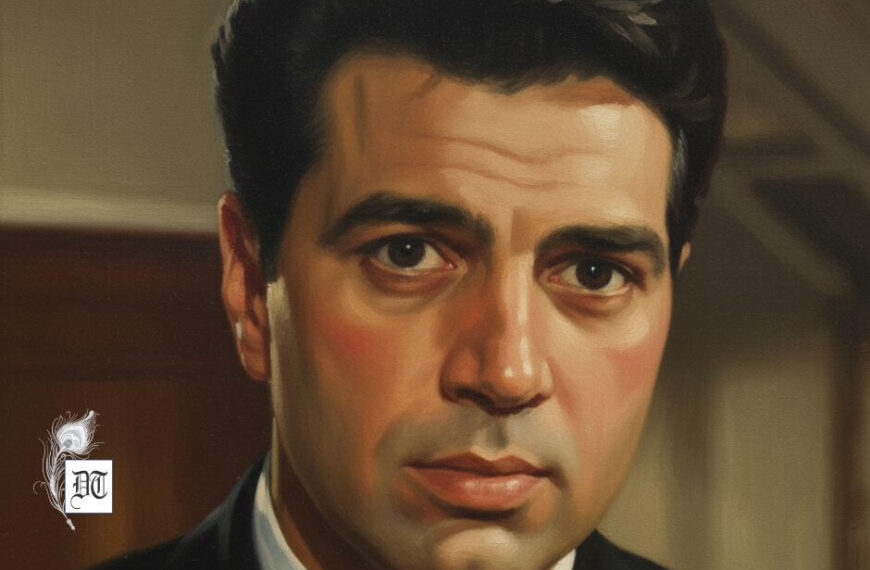
Such an inspiring life story about focus, passion and choice unfolding one’s life potential…. Including the discipline needed to follow it inside and outside. When the drive is authentically recognized , valued and nurtured…. the potential is unlimited. What also is non conventional or compromising is money was not the reason or influence in Stephan’s journey. I hope the public will read Stephan’s journey of excellence to understand their own value focus within their choices. We need these amazing creative models in the world today. Super article Stephan! Bravo.
Thank you such powerful and kind words Jeanie! Reading this adds even more to the story.